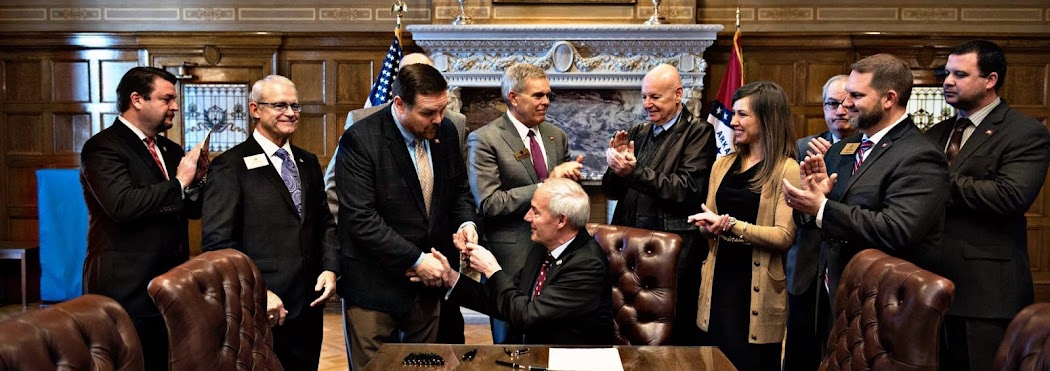by Brian McCombie - Tuesday, March 9, 2021
In Arkansas, “Stand Your Ground” legislation (S.B. 24) was recently passed by both houses of the Arkansas legislature and signed into law by Gov. Asa Hutchinson (R). This NRA-backed legislation removes the legal need for a citizen to retreat in the face of an attacker. The previous legal standard in Arkansas required that a person under attack or threatened with attack must first attempt to flee or retreat before the person could use deadly force against his or her attacker.While there were some exceptions to the current Arkansas law, some form of retreat was generally mandated before the intended victim could legally defend themselves. Immediately resorting to force in the face of an attack could (and did) land intended victims in court with various criminal and civil charges.
“This allows the leveling of the field, so everyone gets the same consideration when you go to that court of law,” Rep. Marcus Richmond (R) told the Associated Press.
“That’s the purpose of this self-defense bill, to allow you to defend yourself and not necessarily go to jail when you had no choice because you only had seconds to make that decision.”
“Laws should favor victims—not criminals, as they do now,” said Matt Herriman, NRA state director for Arkansas. “When crimes occur, victims have little time to decide the best course of action for survival. They should not be required to run away or face prosecution for defending themselves. This measure is common sense. Anyone who opposes it puts the interests of the criminal above the interests of the victim.”
“This important legislation is a huge step forward for self-defense rights and law-abiding gun owners in the Land of Opportunity! Thirty-four other states have passed Stand Your Ground laws allowing their citizens to more effectively protect themselves, instead of forcing unnecessary risks upon them. Senate Bill 24 specifically uses language similar to that of Florida’s law, which is seen as the gold-standard,” the NRA Institute for Legislative Action said.
“It is time that Arkansas move past the politics and provide clarity for good citizens who just wish to protect themselves and others,” said Sen. Bob Ballinger (R), as S.B. 24 moved through the legislative process. “Over the last few years, a group of legislators went to work with prosecutors, self-defense advocacy groups and law enforcement to craft the right stand your ground legislation for Arkansas.”
In his 2001 book, Armed: New Perspectives on Gun Control, Florida State Professor of Criminology Gary Kleck addressed the efficacy of armed self-defense. When citing crime victimization data, Kleck determined that “[v]ictims who used guns were less likely to be injured than crime victims who did not resist.”
The practical ability of average Americans to meet violent crime with armed self-defense has improved substantially since Professor Kleck first began his research, as more and more states have improved access to concealed-carry permits, have added “Castle Doctrine” laws (legal doctrines that grant certain immunities to persons defending themselves within their abodes), and addressed Stand Your Ground issues.
NRA-ILA summed it up this way: “When presented with a reasonable threat of death or grievous bodily harm, free individuals have the right to defend themselves with deadly force. This right is inherent to all people, preexists any government and is not dependent upon the Second Amendment, which codifies the right to armed self-defense in the U.S. Constitution.”




